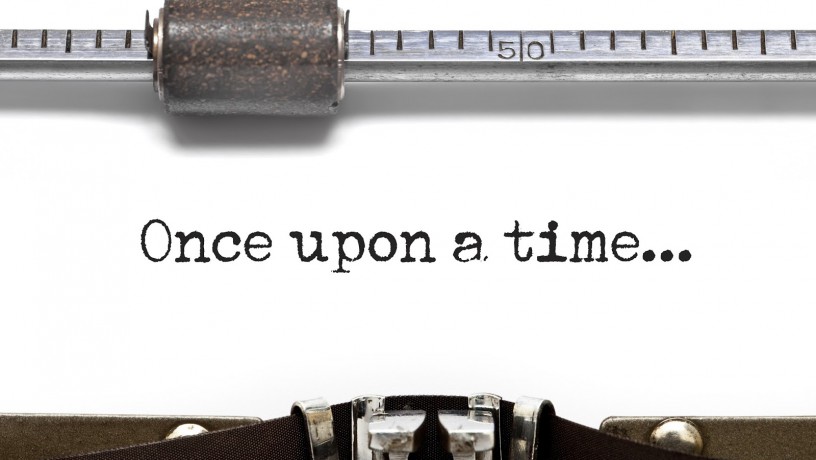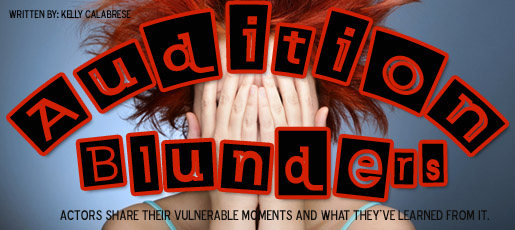You finally hear those three little words: You booked it! That’s right. You have your next acting gig before you and the character you have been chosen to perceive is completely dependent on you to give it life. Before you know it the performance/shoot dates are set, you’re mingling with the cast and crew, and your getting your costume together. But, before all of that stuff, you must tackle one thing: The script. Without the script, there is no character for you to bring to life. Whether you’ve seen the snippets of the script in the audition process or not, now is the time that the entire life of the story is finally resting at your fingertips. It’s exhilarating… and totally overwhelming. Where do you even begin?!
Yes, as exciting as getting a new script can be, it can also be daunting. Whether you’re preparing for live theater or a short film, you have lines to memorize, moments to take not of, and character relationships to understand. That’s why I decided to try and answer the age old actor question: What do I do? I’ve compiled responses from actors of both the stage and screen who are working in and around New York City to see what their process was. And, in response, I’ve put together a ten step process on what you can do the second you are handed that freshly pressed script (or given the file to download).
While there are many different ways that an actor can approach a script, it is important to try out the techniques that work best for you and see what fits. Here is just one variation:
1. Print Out The Script. Make the script a tangible element. From there you can highlight your lines (if you feel that’s necessary) and you have something in your hands that you can always carry around and work with. Even when you don’t have access to the internet!
“A very simple but important thing for me is: Always printing it out. However old fashioned it is, I cannot learn something, or even practice it, from staring at my iPhone screen. I have to print it out, scribble all over it, and carry around the paper until it’s beat half to death.” – Julie McNamara, Actress
2. Read The Script With No Judgements. Get the text into the forefront and any excitement or attachment to the character out of your system. Reading the script with an objective point of view will help you detach from prejudging the character or what you think you should do in your performance.
“Find a quiet space and start reading!” – Anni Krueger, Actress
“Scream! Seriously. I get excited easily and it’s become a thing when diving into a new project.
Then I settle into my bed and lock away for a few hours reading it.” – Tanya Perez, Actress
“Reading it first without making any actor choices or passing any judgements.” – Michaela Grant, Actress
“Read it. Then I read it. Then I do more reading of it.” – Maggie Reed, Acting Sitcom Coach “I tend to read it first from the perspective of someone who hadn’t just been cast.” – Brandi
Alyssa Young, Actress
“First time through, I’m trying to step back and get some perspective on the whole work before i start tunneling in… Experiencing it more as an audience member.” — Cynthia Granville, Actress
3. Get A Sense Of Your Character Within The Script. After you have read the overall story through once, then most actors tend to go back and read the script again! However, it is in this second time of reading the script that the overall sense of the character you have been cast in emerges. Questions about who your character is and what their relation to the plot is are now able to be brought into question.
“When I read a script I question every person, place and thing. What does that item mean to him/ her that he chose to ask for it? Why that place, what does it represent? I figure out all of the relationships between every character that’s referenced in the script. And the previous circumstances and what will happen afterwards. I don’t get hung up on the actual lines, I just try to understand what’s happening (the story) and break it down into sections having a theme (what’s the objective?) for each chunk.” — Steven St. Pierre, Actor
4. Do Any Other Necessary Research. While the script can provide the actor with essential details about their character, it can also being hinting at information that’s not necessarily spelled out for you. That’s where outside research and even the imagination can come into play. Whether you need to better understand a time period, a profession, a lifestyle, or even how your character came to be the way they are, now is the time to do that. You’re taking this time to build upon the foundation you have already initially laid out.
“…Examine all the who, what, where, whys, of what’s going on for my character in each scene. Making mental or written notes on all the unanswered questions I have so when I’m at the first read I am ready to ask about those questions. Also do research on that time period if it is not present day and take a look at the author’s other work to get clues on how they work/think.” — Rosalie Tenseth, Actress
“I’ll then do some research (on the profession of the person, time and setting, who they’re speaking to etc.) And then I go through a series of why questions. I also like to create backstories if I have time. I’ll go back as far as childhood if necessary because it’s so interesting to me…down to how many cousins they have, a memorable birthday party, etc.” — Courtney Williams, Actress
5. Get The Script On It’s Feet. There’s no better way to tackle a new script then by actually working on it! Throw away all of the nitty gritty details of your character, listen to the actor reading opposite you, and live spontaneously in the moment. Don’t think about what inflection should be used for each line. At this point, you can trust that you know your character and the
script inside out and allow that character to simply live through you. And don’t be afraid of failing or thinking about the ways in which you “think” a scene is going to go. This is the part that makes acting fun!
“Take it off the page (Harold Guskin style)” — Marzy Hart, Actress
“I’m starting to use a method of reading the text out loud, letting images and thoughts bubble up with each word or phrase, akin to Harold Guskin’s recommendation in [the book] How to Stop Acting.” — Laura Daniel Koch, Actress
“…I’ll re-read it from the fun, actor-creative side of my brain and use my imagination to allow myself the freedom to think of my character from many angles. Maybe read out-loud lines with different takes. I don’t decide on anything, but come up with some different ideas to bring to the table when rehearsals start.” — Sierra Rein, Actress (continued)
So, what are you waiting for?! Get out your script. Highlight your lines (if you want to), and start creating! Because just showing up on stage or on-set is not going to get the work done all on it’s own. Showing up prepared, and then throwing it all away to be in the moment, is the key to nailing any role.







